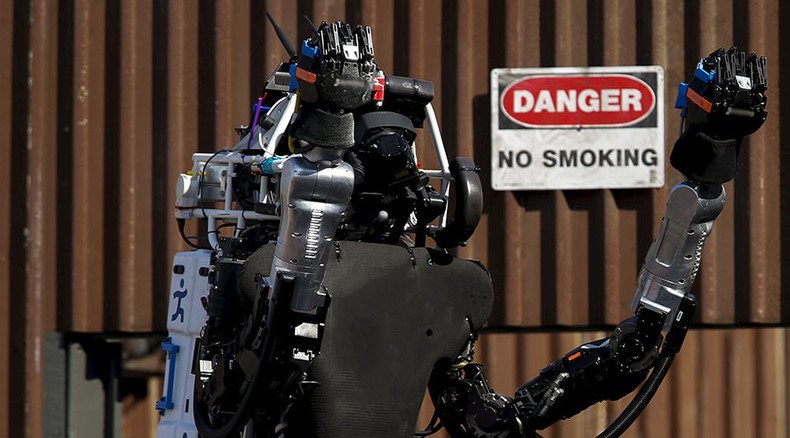Robots to build ‘self-repairing’ cities, fix street lamps & potholes

Judgment day and the rise of the machines just took an almighty step closer after an English university announced it is spending £4.2 million on a project to create “self-repairing cities” that employs robots to fix infrastructure problems.
Although not quite on the scale of Skynet and Terminator cyborgs, a team of University of Leeds researchers will create small robots that can identify and fix a number of problems including broken street lights and potholes, which will mean repair work is less disruptive to the public.
Some of the plans include drones that can fly on to the top of street lights to carry out repair work. Others will fix potholes in the road, while robots set lose in subterranean pipes will be responsible for monitoring and maintenance.
Head of the research team Professor Phil Purnell said he wanted Leeds to become a pioneering city.
“We want to make Leeds the first city in the world to have zero disruption from street works.
“We can support infrastructure which can be entirely maintained by robots and make the disruption caused by the constant digging up the road in our cities a thing of the past.”
Team member Dr. Rob Richardson said the robots could eliminate the need for closed roads and hefty equipment.
UK & US blocking ban on killer robots – experts http://t.co/MOEKsR7IIWpic.twitter.com/uqsS1vZ43H
— RT UK (@RTUKnews) October 6, 2015“Our robots will undertake precision repairs and avoid the need for large construction vehicles in the heart of our cities.”
The team will also look at the social, environmental, political and economic impact of the new technologies.
The project is part of the £21 million (US$32.5 million) Engineering Grand Challenges project, which is part of the Engineering and Physical Sciences Research Council (EPSRC).
The announcement comes just weeks after research from the University of Oxford and financial giant Deloitte showed that roughly 35 percent of jobs in the UK are at risk of becoming computerized during the next two decades.
Office jobs which require the repetitive creation of spreadsheets or reports could easily become computerized, but other manual jobs such as taxi driving and factory work could also be replaced by robotics.
Journalists may also see a rise in the number of articles being produced by robots via narrative software which turns data into stories.












